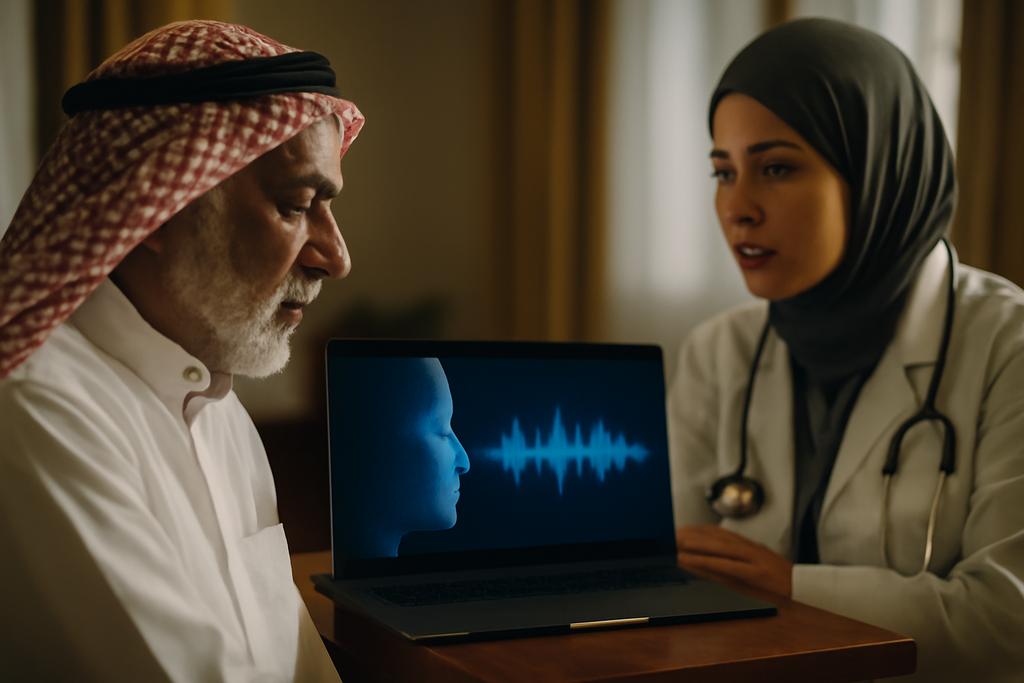Unlocking the Stories Behind Arabic Patient Reviews
In the digital age, patient feedback is no longer confined to checkbox surveys or formal interviews. Instead, it flows freely through online reviews, social media posts, and candid narratives. These voices carry rich, emotional accounts of healthcare experiences, offering a treasure trove of insights for improving medical services. Yet, for Arabic-speaking populations, this wealth of information has remained largely untapped — tangled in the complexities of dialects, language nuances, and a scarcity of annotated data.
Researchers at Newcastle University, led by Eman Alamoudi and Ellis Solaiman, have taken a bold step to bridge this gap. Their project, EHSAN, harnesses the power of ChatGPT alongside human expertise to decode Arabic patient reviews at an unprecedented level of detail. The result? A pioneering dataset and framework that not only understands what patients say but also why they feel that way — all while navigating the linguistic labyrinth of Arabic healthcare narratives.
Why Arabic Healthcare Feedback Has Been a Tough Nut to Crack
Arabic is a language of many faces. From the bustling streets of Riyadh to the coastal cities of Jeddah and Dammam, dialects shift and morph, making automated text analysis a formidable challenge. Add to this the specialized vocabulary of healthcare and the informal, often messy nature of online reviews, and you have a perfect storm that has kept Arabic sentiment analysis in healthcare lagging behind other languages.
Traditional patient satisfaction surveys, while useful, often miss the emotional depth and nuance found in free-text feedback. They also risk bias — patients might overstate satisfaction out of gratitude or social pressure. Meanwhile, unsolicited reviews can reveal hidden pain points like long waiting times, billing frustrations, or staff attitudes that surveys gloss over.
ChatGPT Meets Human Wisdom in a Hybrid Dance
The Newcastle team’s innovation lies in a hybrid annotation pipeline that combines ChatGPT’s lightning-fast pseudo-labelling with careful human review. ChatGPT reads thousands of Arabic hospital reviews, breaking them down sentence by sentence, and tags each snippet with a specific aspect (like nursing staff or billing) and a sentiment (positive, negative, or neutral). Crucially, the AI also explains its reasoning for each label, offering transparency rarely seen in automated systems.
Human annotators then step in to verify and correct these labels, but not exhaustively. The researchers experimented with three levels of supervision: fully human-verified labels, half-verified, and purely AI-generated. Remarkably, the models trained on AI-only labels performed nearly as well as those with full human oversight, suggesting a cost-effective path for scaling Arabic sentiment analysis.
From 17 Shades of Feedback to 6 Clear Categories
One of the study’s surprising findings was how simplifying the classification scheme boosted performance. Initially, the team used 17 fine-grained categories to capture every nuance — from radiology to privacy concerns. But this granularity sometimes confused both humans and machines. By consolidating these into six broader categories, the models became more accurate and reliable, showing that sometimes less is more when it comes to understanding patient sentiment.
Arabic-Specific Models Outperform Generalists
The researchers compared two transformer models: AraBERT, tailored specifically for Arabic, and DistilBERT, a lightweight multilingual model. AraBERT consistently outshone its competitor, especially in the more complex tasks, highlighting the value of language-specific AI in capturing dialectal subtleties and healthcare jargon. Yet, DistilBERT’s respectable performance and faster training times suggest it could be a practical choice when resources are limited.
Why Explainability Matters in Healthcare AI
Healthcare is a domain where trust and transparency are paramount. The EHSAN dataset’s inclusion of ChatGPT-generated rationales for each annotation is a game-changer. These explanations help human reviewers understand the AI’s thought process, build confidence in automated labels, and open doors to more interpretable AI systems that can justify their decisions — a critical step toward ethical AI in medicine.
Implications Beyond Saudi Arabia
While the dataset focuses on Saudi hospitals, the methodology offers a blueprint for Arabic healthcare sentiment analysis across the Arab world. The team envisions expanding EHSAN to cover diverse dialects and healthcare systems, refining AI prompts, and integrating explanation generation directly into model training. Such advances could empower healthcare providers everywhere to listen more closely to their patients’ voices, driving improvements that matter.
Balancing AI Efficiency with Human Insight
The Newcastle study underscores a powerful truth: AI doesn’t have to replace human expertise; it can amplify it. By letting ChatGPT do the heavy lifting of initial labelling and reserving human effort for targeted review, the researchers crafted a scalable, cost-effective approach that respects the complexity of language and healthcare alike.
In a world where patient experience is increasingly recognized as a cornerstone of quality care, tools like EHSAN could transform how hospitals understand and respond to feedback — not just in Arabic, but in any language where voices have been waiting to be heard.
Looking Ahead
The journey is just beginning. Future work will test how well these models generalize across regions and dialects, explore fairness and bias in AI-generated labels, and develop systems that can explain their decisions in real time. The Newcastle team’s work is a beacon for researchers and healthcare providers alike, illuminating a path toward more empathetic, data-driven care powered by the synergy of human and artificial intelligence.










